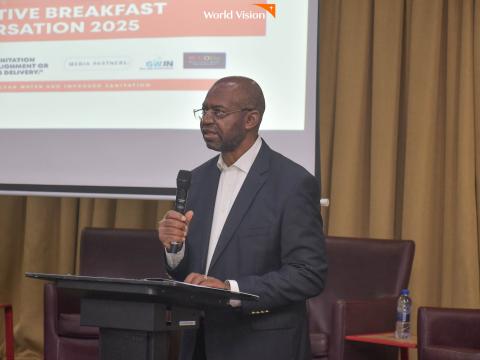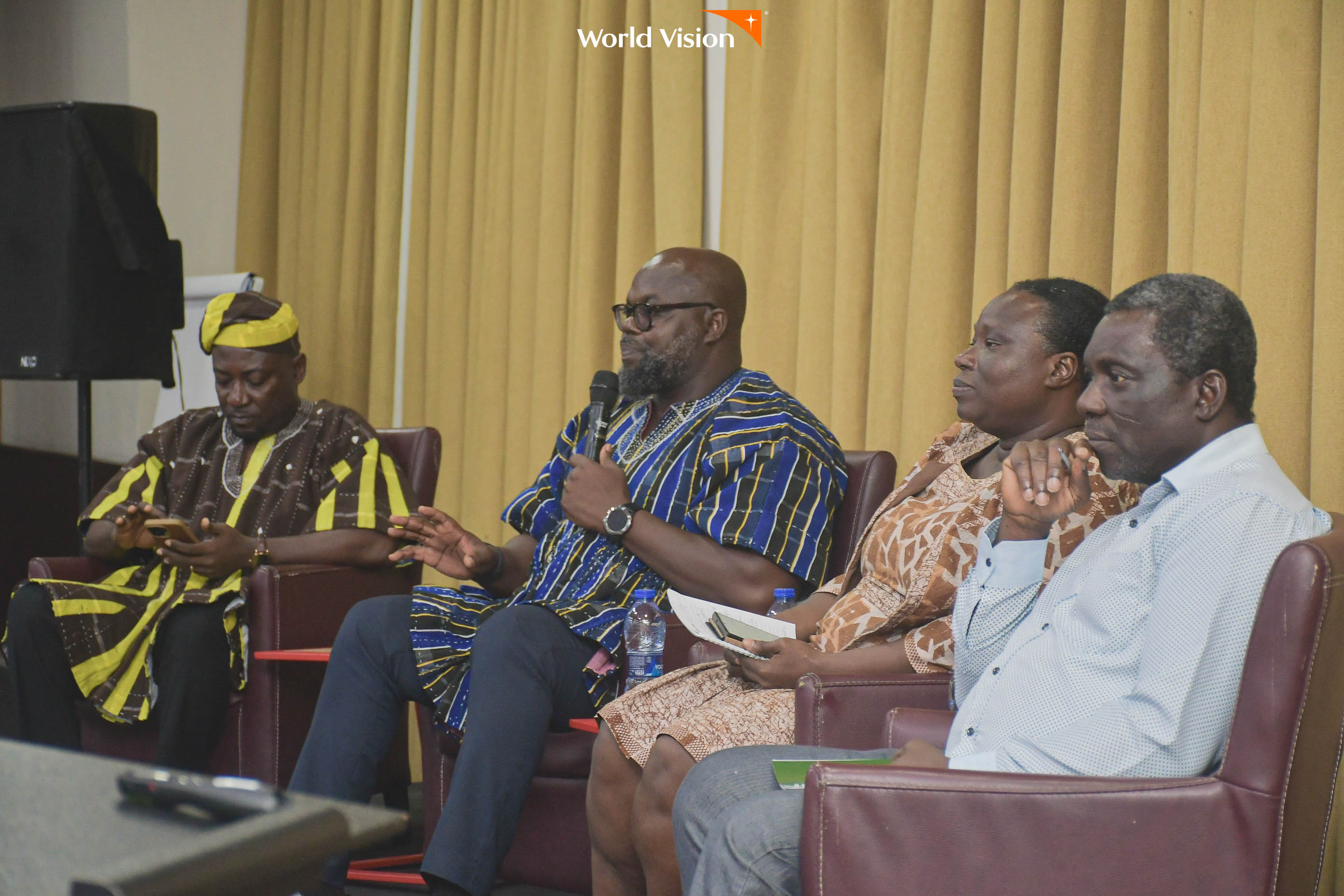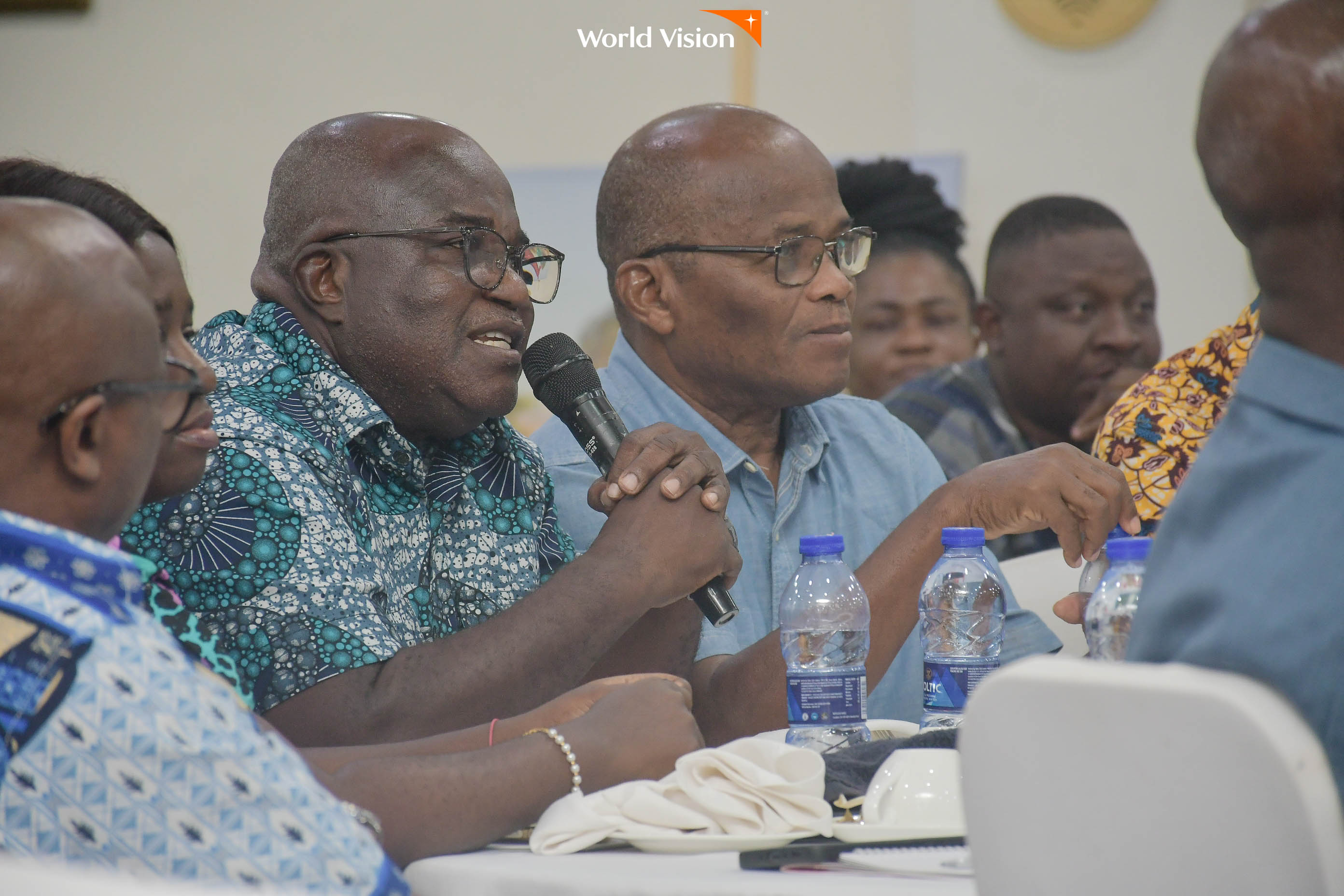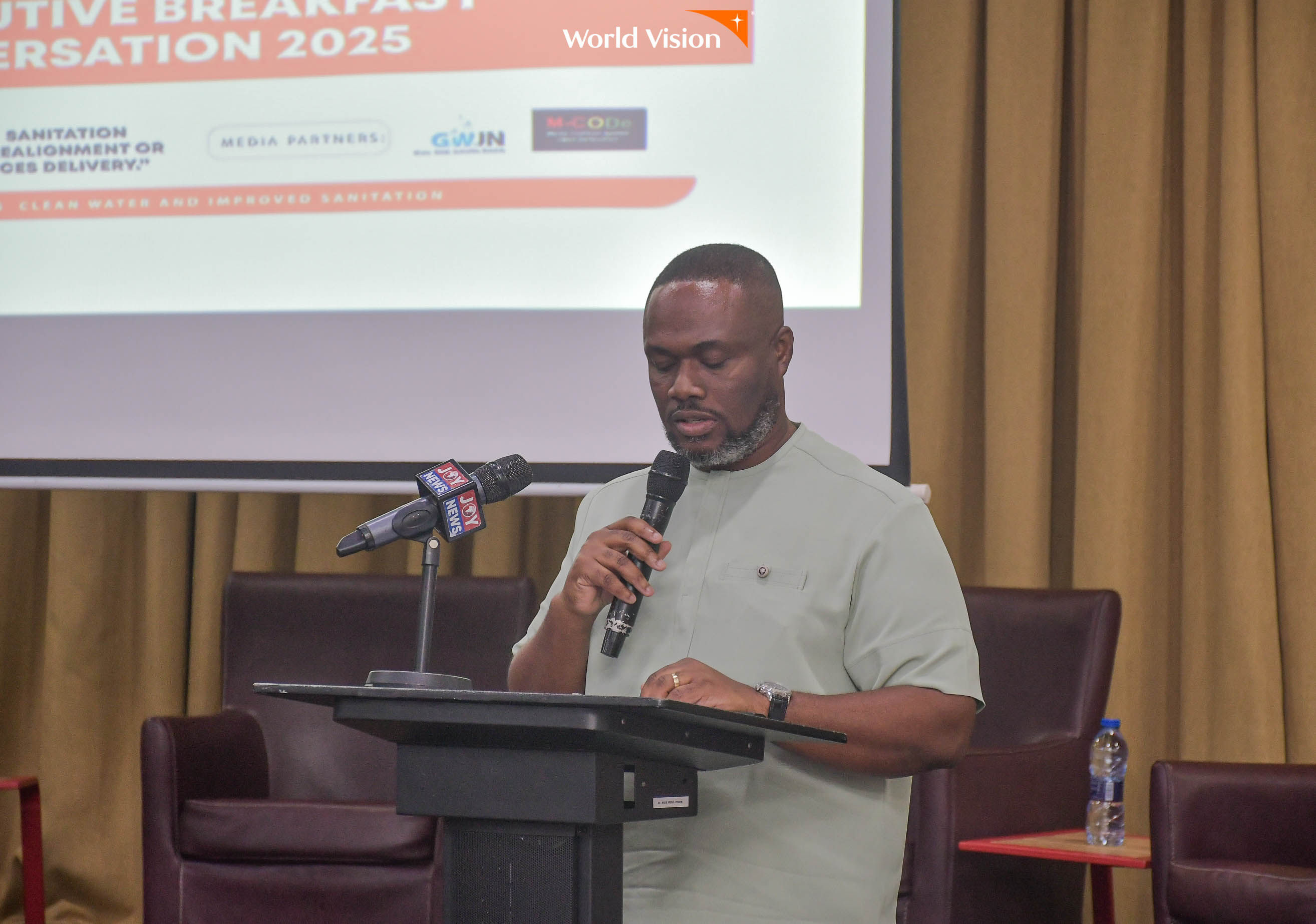Safeguarding WASH Progress in Ghana: Leaders Urge Stronger Partnerships

By Vivian Adu, Communications Officer
World Vision Ghana, Ministry of Works, Housing and Water Resources (MWHWR) and the Ministry of Local Government, Chieftaincy and Religious Affairs (MLGCRA) has held the fourth edition of the Executive Breakfast Conversation (EBC).
This high-level meeting brought together a wide range of stakeholders from government, development partners, civil society, the private sector, and academia to discuss the future of water, sanitation, and hygiene (WASH) services in Ghana.
Under the theme, “The Dissolution of the Ministry of Sanitation and Water Resources: A Strategic Realignment or a Potential Setback for WASH Services Delivery?”, the event provided an opportunity for cross-sector reflection and forward planning, considering recent changes in ministerial responsibilities.

In his welcome address, Jean-Claude Mukadi, the Interim National Director of World Vision Ghana, thanked all the partners and participants and praised the event for evolving into a solution-driven platform that meaningfully contributes to national WASH policy and programming.
“Whether under one ministry or two, our priority must remain clear in order to secure increased investment and greater prioritisation for inclusive and accelerated WASH services that leave no one behind,” he stated. He also reaffirmed World Vision’s commitment to making WASH its flagship intervention, acknowledging its pivotal role in child well-being, health, education and economic development.

In his keynote address, the Minister for Works, Housing and Water Resources, the Honourable Kenneth Gilbert Adjei, urged stakeholders to focus less on institutional restructuring and more on strengthening coordination and service delivery.
“This restructuring offers a pivotal opportunity for deeper collaboration among sector actors. What matters now is our collective effort to ensure access to safe, reliable and affordable water services for all communities,” he remarked. He further emphasised the importance of inclusive planning, particularly in peri-urban, rural and underserved areas.
The minister reaffirmed the government's commitment to collaborating with development organisations, civil society and the private sector to improve water infrastructure and service provision. He stressed that the sustainability of WASH is not just a sectoral issue, but a national development imperative.

The conversation concluded with a unified call to action for stakeholders to realign strategies, strengthen partnerships, and uphold the national commitment to Sustainable Development Goal 6: ensuring availability and sustainable management of water and sanitation for all.